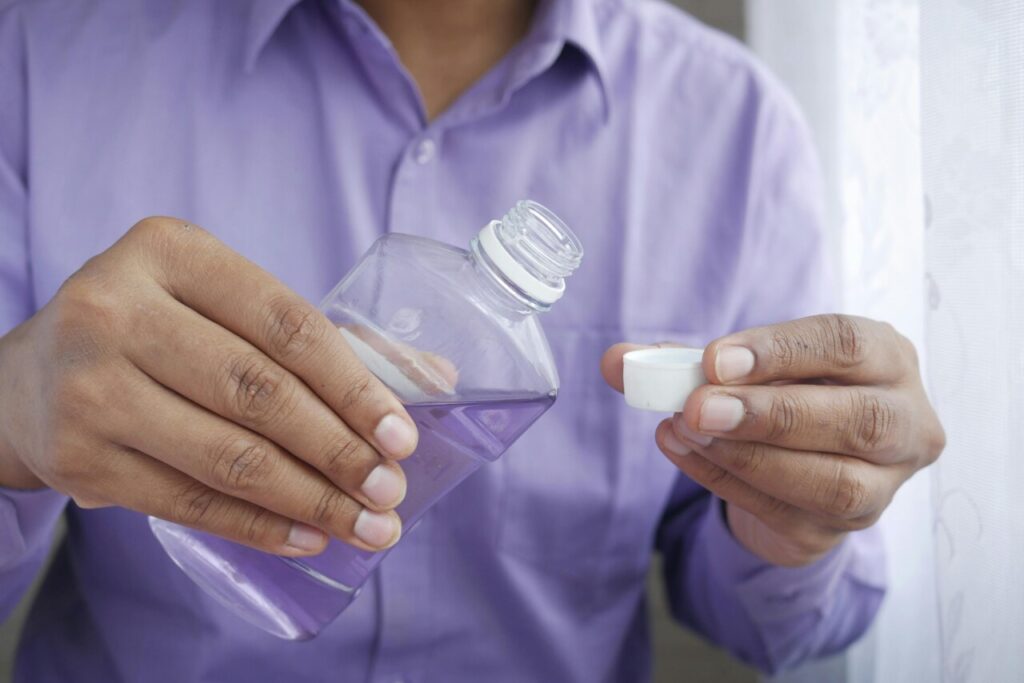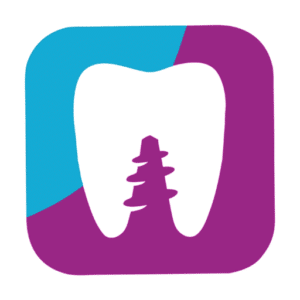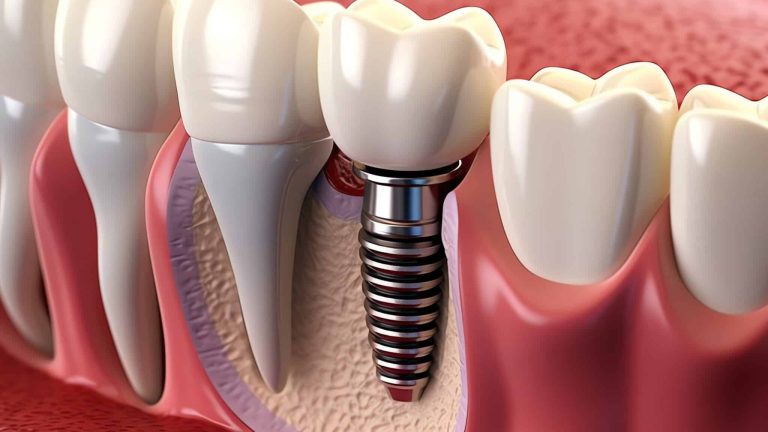Mouthwash is a key complementary tool in oral hygiene routines. Its regular use not only helps maintain fresh breath but also plays an important role in preventing cavities, gum disease, and other oral issues. However, not all mouthwashes are the same, and their effectiveness depends on choosing the right type and using it correctly.
In this article, we will explore the benefits of mouthwash, the different types available, and how to incorporate it effectively into your daily dental care routine.
What is mouthwash?

Mouthwash is a liquid solution designed to complement brushing and flossing. It contains active ingredients that help reduce bacteria buildup, combat bad breath, and protect against various oral conditions. While it does not replace brushing or flossing, it can be a powerful ally in maintaining a healthy mouth.
Key benefits of mouthwash
- Bacteria elimination:
- Reduces bacterial buildup in the mouth, helping to prevent cavities and gum disease.
- Prevention of gingivitis:
- Antimicrobial mouthwashes can reduce gum inflammation and prevent gingivitis.
- Strengthening enamel:
- Fluoride mouthwashes strengthen dental enamel and reduce the risk of cavities.
- Fresh breath:
- Neutralizes compounds that cause bad breath, providing a fresh feeling.
- Reduction of dental plaque:
- Some mouthwashes help decrease plaque and tartar formation.
- Speeds up recovery after dental procedures:
- Specialized mouthwashes aid in healing and prevent infections after oral surgeries.
Types of mouthwash and their applications
There are different types of mouthwash designed to address specific needs. Below are the most common:
1. Fluoride mouthwashes
- Benefits:
- Strengthen dental enamel and protect against cavities.
- Ideal for:
- People at high risk of cavities or with sensitive teeth.
- How to use:
- Use after brushing, once or twice a day, avoiding rinsing with water to allow fluoride to act.
2. Antimicrobial mouthwashes
- Benefits:
- Eliminate bacteria that cause gingivitis, bad breath, and plaque buildup.
- Ideal for:
- People with gingivitis or at risk of periodontal disease.
- How to use:
- Follow your dentist’s recommendations, as overuse may cause staining.
3. Cosmetic mouthwashes
- Benefits:
- Provide temporary fresh breath.
- Ideal for:
- Daily use to combat bad breath.
- How to use:
- Complement your oral hygiene routine but do not replace therapeutic mouthwashes.
4. Mouthwashes for dental sensitivity
- Benefits:
- Reduce sensitivity to cold, heat, or sweet foods.
- Ideal for:
- People with sensitive teeth or those who have undergone teeth whitening.
- How to use:
- Use after brushing and avoid rinsing with water immediately.
5. Mouthwashes for post-dental procedures
- Benefits:
- Promote healing and prevent infections.
- Ideal for:
- People who have had extractions, implants, or other surgical procedures.
- How to use:
- Follow your dentist’s instructions strictly.
6. Alcohol-free mouthwashes
- Benefits:
- Gentle on gums and do not cause a burning sensation.
- Ideal for:
- People with sensitive gums, dry mouth, or children.
- How to use:
- Use daily for gentle and effective cleaning.
When to use mouthwash?
The right time to use mouthwash depends on your specific needs:
- After brushing:
- To reinforce cleaning and protect against bacteria.
- Before leaving home or important meetings:
- To maintain fresh breath.
- After meals or drinks:
- If you cannot brush your teeth, mouthwash helps remove food debris and bacteria.
- Before bed:
- To protect teeth overnight, especially when using fluoride mouthwash.
Tips for using mouthwash correctly
- Read the instructions:
- Follow the product’s directions or your dentist’s recommendations.
- Use the right amount:
- Typically, 20 ml (about one capful) is sufficient.
- Gargle and rinse well:
- Keep the mouthwash in your mouth for 30 seconds and gargle to reach the throat.
- Avoid eating or drinking immediately:
- Do not consume food or drinks for at least 30 minutes after use to maximize its effectiveness.
- Do not replace brushing or flossing:
- Mouthwash is a complement, not a substitute.
Common myths about mouthwash
1. “Using mouthwash is enough to keep the mouth clean.”
- False. Mouthwash does not remove plaque like brushing and flossing.
2. “Mouthwashes with alcohol are more effective.”
- Not necessarily. While some contain alcohol to kill bacteria, they are not suitable for everyone and may cause dry mouth.
3. “Children can use any mouthwash.”
- False. Children should use mouthwashes specifically designed for them, as many products contain fluoride in concentrations not suitable for minors.
When to consult a dentist about mouthwash use?
If you have questions about which type of mouthwash is right for you, consult your dentist. It is also important to seek guidance if:
- You experience inflamed or frequently bleeding gums.
- You have persistent bad breath.
- You have recently undergone a surgical procedure.
Conclusion
Mouthwash is a versatile tool that can significantly enhance your oral hygiene routine. From preventing cavities to protecting against periodontal diseases, its correct use can make a big difference in your oral health. However, choosing the right type and using it correctly is key to achieving the best results.
At Clinics La Guardia, we are committed to your oral health. If you need guidance on using mouthwash or other dental care tips, contact us for a personalized consultation.




